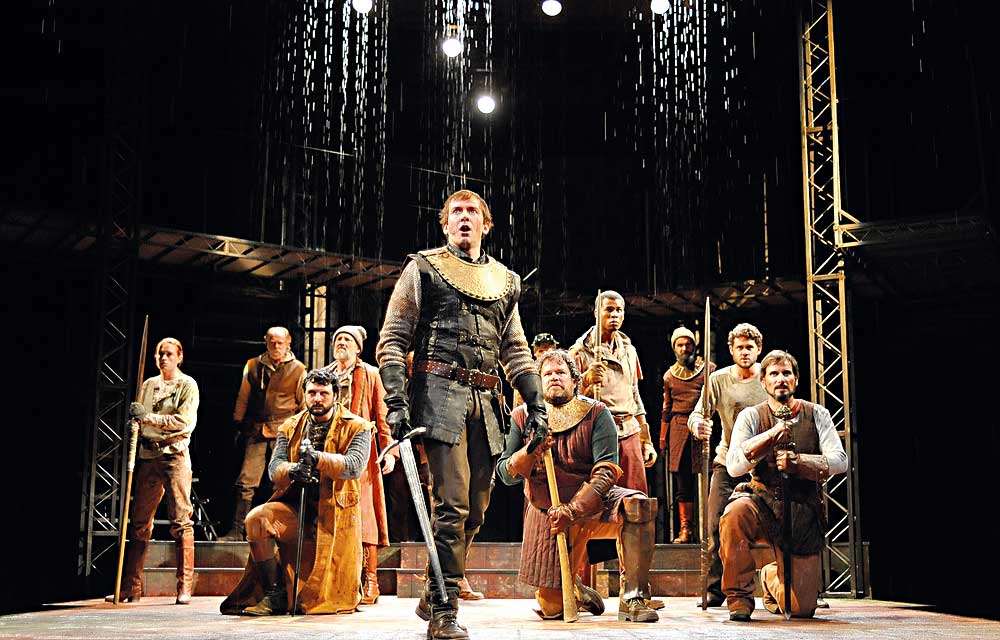Sharing that early rehearsal—room work with another director is vulnerable and exposing, and it requires real faith in the generosity of the partnership. Donahue describes it this way: “As trusting collaborators, we could reflect back to one another insights into and critiques of one another’s process. It was certainly painful at times, but also immensely rewarding and eye-opening.”
For all of its challenges, co-directing also has its comforts. Quaintance puts it this way, “I slept better than during any other show of my career—no tossing and turning wondering about the work for the day. Having instant feedback from a collaborator and shared responsibility for the big picture was extraordinarily freeing. My favorite note I’ve ever been able to give is, ‘Have Joe fix this.’”
It was my intention to co-direct our Into the Woods/A Midsummer Night’s Dream rep with Shana Cooper next season. The Stage Directors and Choreographer’s union stipulates that when two directors work on a play together (under the LORT contract), the producing theatre is allowed to pay 80-percent of the full fee for each show. The caveat is that for the rule to be applied, neither director is allowed to be on the staff of the producing theatre. This rule didn’t apply in my collaborations with Quaintance and Donahue, as they were not then SDC members (they have since joined); with Serrand, we got a special one-time non-precedential concession to apply the 80 percent rule. We asked for but did not receive the same concession for me to collaborate with Cooper, so we were forced to split the rep, with her directing Dream and me Into the Woods, though we both very much wanted to co-direct both.
This is a rule I hope will be reconsidered at the next LORT negotiations, as it does no service to SDC directors; artistic directors are often the least interesting directors working at their own theatres, partly because they have too many other responsibilities, partly because they have limited opportunities to make work outside of their own buildings, but mostly because there is nobody really pushing them and reflecting their work accurately back to them. Co-directing is perhaps the most powerful way to assure those artists continued development and growth.
Co-directing means real collaboration. It means killing your babies. It means being revealed as having no clothes. It means you get bigger. It means you grow. It means you learn. I’m a better director, collaborator and person for having gone on those journeys.
Quaintance again: “I learned more than any time since grad school. Watching my work made better by a different approach, and making another director’s work better without trying to make it like mine was hugely important in my development as a director.”
Joseph Haj is producing artistic director of PlayMakers Repertory Theatre in Chapel Hill, N.C.


